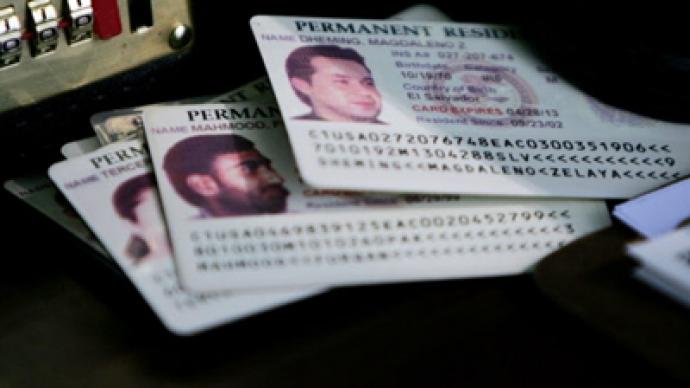Winning the lottery and losing big

Each year thousands of immigrants win the "green card" lottery, and come to the US thinking they'll score the American Dream.
In the United States every year countless people play the lottery, entering for a chance to win a mega-million dollar fantasy, believing a few dollars and a dream could buy them a life change. Every year more than 10 million people also play a different kind of lottery, and 50,000 win.Jamuna is one of them. Jamuna and her husband, teenage son, and 7-year-old daughter are immigrants from Nepal. They entered and won the United States “diversity visa lottery.” This lottery is a Congressional mandate. It's supposed to be an opportunity for people to come to America from countries with historically low rates of immigration. The jackpot was permanent residency – the prizes not cash but green cards, and this startling experience:“We had to start from scratch, from zero once we got here," said Jamuna.They've struggled through two years of joblessness and career-downgrading after finding their education in Nepal doesn't count in the US. Setbacks they never expected."We didn't know," claimed Jamuna. "People used to say you're educated it will be easy, America's a big country with a lot of facilities, life will be better."But in reality, she said, "everything was different." Life was too hard.Experts who work on immigration issues say lottery winners in this situation really have no resources available from the government that invited them here. And the struggles of Jamuna and her family are not unique."For most people we've encountered it's been very difficult," explained Luna Ranjit, executive director of Adhikaar, a New York Nepalese human rights group.They reflect a group of immigrants who come to the US not because of a job lined up or a family sponsoring them, but for many because of a vision of what they can achieve."They really have that American dream image of coming to the US," said Nicole Cicerani, executive director of Upwardly Global, a New York nonprofit that helps immigrants re-establish their careers in the US. "They've really invested in their education and they think that the United States is the place to put those skills and degrees and that ambition to work with the greatest possible return."In reality, what they find is maybe some familiarity in an ethnic neighborhood, but many struggle to find economic opportunities better than they had in their home country, many struggle to even find jobs so they can survive in this country."We see this trend of downward mobility, and mostly among highly skilled workers," said Ranjit.Finding foreign degrees and experience don't count for many US employers; these immigrants end up taking anything. It means engineers and business managers end up as cab drivers and cashiers. According to a study two out of five foreign educated immigrants are either in this situation or unemployed altogether.For Jamuna's family, it's an American Dream they want to wake up from."If we had known this we wouldn't have come," shelamented. "The life was much easier in my country."People who see their plight firsthand, like Cicerani, argued the government should do more to set false expectations straight and provide resources to help them rebuild."I do think it's the State Department's responsibility and I think the United States is going to lose out to other countries who have taken that step," she said.They're possibly losing out to countries that take these steps, unless they make sure winning the lottery, actually pays off.Mark Krikorian, the executive director of the Center for Immigration Studies in Washington, DC said the random nature of the lottery is egregious because there are few criteria utilized when making these immigration selections. “They’re not picked because of job skills. They aren’t picked because they got an education here or even have relatives here,” he explained.Immigrants coming to the US through the lottery are not prepared to succeed in the United States, he argued. Further criteria would insure people were well equipped to enter the system effectively. The US H1B Visa program however is designed to cater to skilled workers, but the system needs adjusting to ensure employers bring in highly qualified people who can contribute to American society. Other nations, like New Zealand and Canada utilize point and skill based systems that take into consideration criteria that ensure they will be a productive part of their economies. The US does not have in place a system like this. “We don’t even have an entrance exam here, that’s part of the problem,” added Krikorian. “The visa lottery is probably exhibit A for probably the stupidest and most inefficient part of our immigration system.” He said the US needed a clear, transparent and efficient way of addressing immigration.











